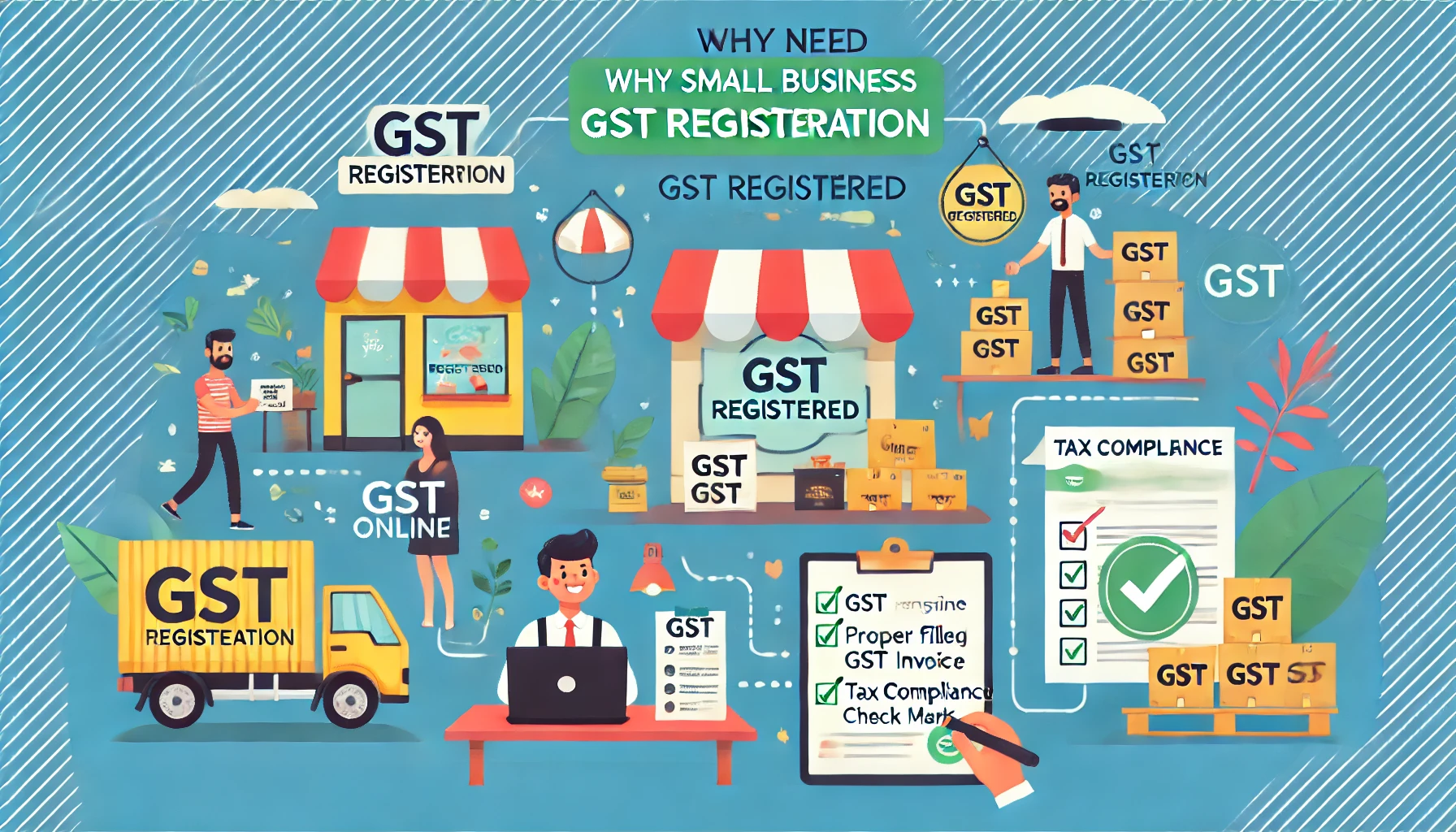Small Businesses Need GST Registration
1. Legal Compliance and Penalty Avoidance
The Indian government mandates GST registration for businesses with a turnover above a certain limit—₹40 lakhs for goods suppliers and ₹20 lakhs for service providers (₹10 lakhs for special category states). Non-registration in spite of eligibility may result in heavy penalties, including fines and prohibition of business activities.
2. Business Credibility
GST registration gives credibility to your business, making it more trustworthy in the eyes of customers, suppliers, and banks. Most government offices and businesses prefer to deal with GST-registered businesses, providing small businesses with more scope to expand their business horizon.
3. Use of Input Tax Credit (ITC)
One of the biggest advantages of GST registration is the facility to use Input Tax Credit. Under GST, businesses can claim refund of tax paid on goods and services used for business purposes. This significantly reduces the overall tax burden and enhances profitability.
4. Business Horizon Expansion
GST registration allows businesses to do business freely in India without any restriction. Unregistered businesses are not able to do interstate business, limiting their market potential. GST registration eliminates these restrictions and allows expansion across the country.
5. E-Commerce and Online Selling Opportunities
E-commerce portals like Amazon, Flipkart, and Shopify make sellers register under GST. If a small business wants to leverage the potential of online platforms to reach more customers, GST registration is a must.
6. Better Loan and Credit Facilities
Banks and financial institutions tend to ask for GST registration details while sanctioning loans and credit facilities. A GST-registered company is more likely to receive funds to drive growth and expansion.
7. Simplified Tax Regime
GST has substituted many indirect taxes like VAT, service tax, and excise duty with a single tax regime. The simplification reduces the cost of compliance and administrative time, making it easy for small businesses to manage money.
8. Government Tenders and Contracts
Most government tenders and contracts require businesses to be GST-registered. If a small business wants to bid for government contracts, GST registration is a prerequisite.
9. Competitive Advantage
Customers prefer companies that provide proper tax invoices, as it allows them to claim Input Tax Credit. GST registration gives small businesses a competitive edge over unregistered companies.


